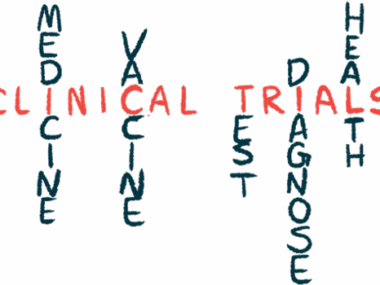Enrollment complete in clinical trial of ALS drug MN-166
COMBAT-ALS trial focuses on safety, disease progression
Written by |

Patient enrollment is complete in a Phase 2b/3 clinical trial evaluating MN-166 (ibudilast), an investigational oral therapy developed by Medicinova to treat amyotrophic lateral sclerosis (ALS).
The COMBAT-ALS (NCT04057898) trial is testing whether MN-166 can safely slow ALS progression in 234 adults with ALS, ages 18 to 80, at sites in the U.S. and Canada. Top-line data are anticipated by the end of 2026. The trial began in 2019.
“Completing enrollment in this Phase 2b/3 trial marks a major milestone for our MN-166 program and reflects the dedication of our clinical team and the ALS community,” Kazuko Matsuda, MD, PhD, chief medical officer at Medicinova, said in a company press release.
Excess inflammation is thought to contribute to the progression of ALS, a disorder marked by the progressive loss of motor neurons, the nerve cells that allow movement, breathing, speaking, and swallowing.
MN-166 is designed to reduce the activity of immune cells in the brain, with the potential to alleviate inflammation, prevent motor neuron loss, and slow ALS progression.
Aim is ‘a meaningful therapeutic advance for patients’
“ALS remains a devastating disease with limited treatment options,” Yuichi Iwaki, MD, PhD, president and CEO of Medicinova. “We are hopeful that MN-166 may offer a meaningful therapeutic advance for patients living with ALS.”
A previous Phase 2 trial (NCT02238626) demonstrated that MN-166, when combined with riluzole (formerly sold as Rilutek, now available as a generic), either stabilized or reduced ALS severity in more patients than riluzole alone.
In the now fully enrolled COMBAT-ALS trial, participants were randomly assigned to receive MN-166 capsules twice daily or a placebo for one year. After that, patients who complete the primary trial can start or continue MN-166 therapy during a six-month open-label extension.
COMBAT-ALS’s primary goal is to determine whether the therapy can slow disease progression, as assessed by the combined assessment of function and survival, or CAFS. Secondary measures include changes in scores on the ALS Functional Rating Scale-Revised, muscle strength, and quality of life.
An interim analysis of trial data suggested that MN-166 may help slow disease progression, extend survival, and stabilize physical function.
People with ALS who are ineligible for trial — including those with more advanced disease — can access the therapy through an expanded access program, also known as a compassionate use program. In July, the program added new sites, which include all U.S. sites where the COMBAT-ALS is ongoing.
MN-166 has orphan drug status in ALS in the U.S. and the European Union. The designation provides companies with regulatory incentives and potential market exclusivity. The U.S. Food and Drug Administration also awarded the therapy fast track designation, which is meant to speed the review of new therapies with the potential to treat serious conditions with unmet medical needs.






